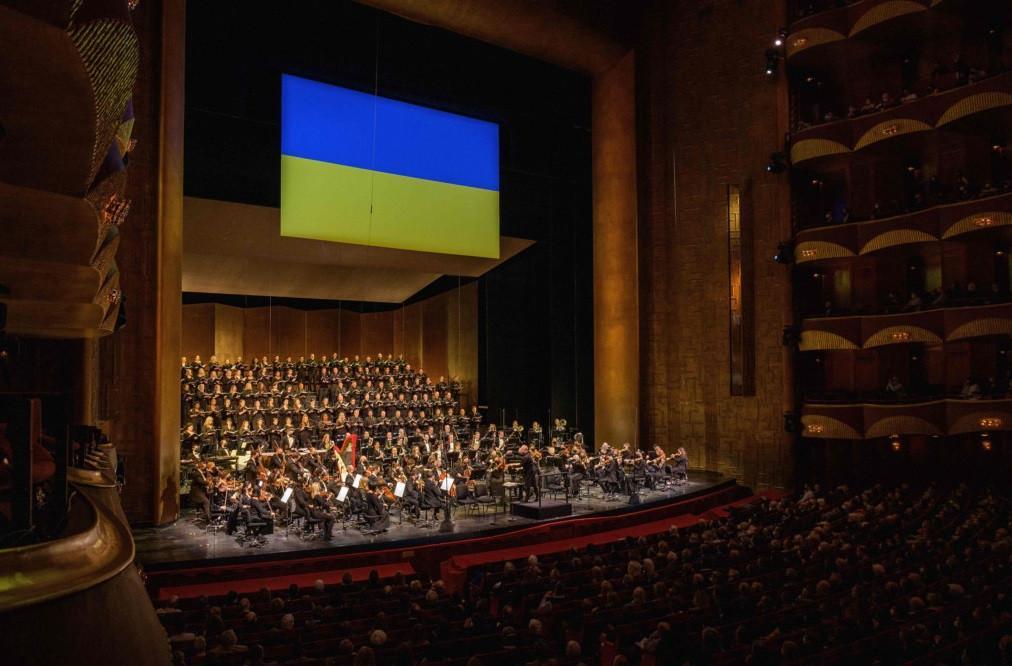
Vladyslav Buialskyi spoke to his mother from Berdyansk, a Ukraine seaside town, and told her not to listen to him take the stage at the Metropolitan Opera on the night of March 14. With electricity out because of Russia’s invasion, he didn’t want her wasting power for the Internet stream.
With three huge yellow-and-blue Ukraine flags draped across the front of the house, the Met held a benefit for the under-attack nation. The concert began with the 23-year-old Ukrainian bass-baritone as soloist in front of the Met orchestra and chorus and music director Yannick Nezet-Seguin, starting the 90-minute program with Ukraine’s national anthem.
Buialsky struggled to hold back tears, and tapped his heart.
Sergiy Kyslytsya, Ukraine’s ambassador to the United Nations, was introduced from the parterre level and received a standing ovation from the sellout crowd of about 3,600. Tickets sold out within 10 minutes last week at $25, and additional money was raised in online donations.
Met general manager Peter Gelb, who last week dropped star Russian soprano Anna Netrebko from future performances over her failure to condemn Russia President Vladimir Putin, also received a standing ovation.
“Members of the Metropolitan Opera company stand in solidarity with the proud Ukrainian people, so strong in the face of such injustice, destruction and death,” Gelb said in remarks from the stage.
The concert was broadcast on radio world-wide, including on Ukrainian public radio.
Thrown together with one primary rehearsal of the orchestra and chorus together on March 14 afternoon and using singers currently in New York for Met productions, the concert showcased the Met chorus and chorusmaster Donald Palumbo.
Everyone on stage wore a yellow and blue ribbon.
The anthem was followed by “A Prayer for the Ukraine,” a choral work by a Ukrainian composer Valentin Silvestrov, Samuel Barber’s Adagio for Strings and an unusually solemn “Va, pensiero,” the chorus of Hebrew slaves from Verdi’s “Nabucco.”